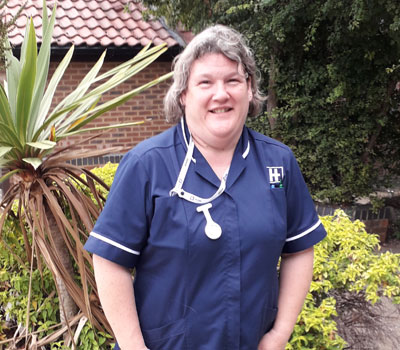Inspirational social care leader Zoë Fry has been awarded the Order of the British Empire (OBE) medal for services rendered to social…
Caring Doesn't Stop For A Bomb Scare
Hilton Nursing Partners nurse Clare Gingell found herself in the middle of a bomb scare but showing her courage and dedication for her patients, she put their safety first.
Police cordoned off areas of Kingston upon Thames in south-west London following the discovery of an unexploded World War II bomb on the site of a former hotel. However Clare was just about to visit a vulnerable patient.
Eager to get to her patient, who was receiving 24 hour care on the Home to Decide pathway, Claire she was able to sign a disclaimer that allowed her to enter the restricted area at her own risk. Once at the patient’s home she was able to explain the situation and ensure the patient was safe.
The main concern from authorities was the fact that windows may smash in the event of complications with the bo mb disposal. Clare moved the patient away from the windows, settled the patient, and stayed with her all day, until 8pm when a niece arrived to take over the care.
mb disposal. Clare moved the patient away from the windows, settled the patient, and stayed with her all day, until 8pm when a niece arrived to take over the care.
Thousands of residents were evacuated as cordons and displacement strategies were implemented with no idea when they could return to their homes, work etc.
The road was closed for three days, which meant additional care strategies had to be put in place. Clare liaised with Social Workers to look for temporary accommodation should it be required, and Life Line, a 24 hour response care team there in case of emergencies.
Rated “Outstanding” by the Care Quality Commission (CQC) Hilton Nursing Partners are one the first external companies to offer rapid and cost-effective hospital discharge services. Working with the NHS and Social Care Commissioners to successfully deliver safe, timely and supportive hospital discharges, patient assessments and patient recovery programmes via nurses, therapists and nurse led personal nursing assistants Hilton Nursing Partners have a proven track record in freeing hospital beds, as well as reducing re-admissions and on-going social services support.





